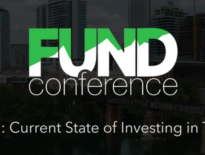
There are two types of people in the world. Those who know what they’re doing and those who don’t.
Your challenge, as an entrepreneur raising capital, is to discern the difference.
Even with the very best of intentions, wealth doesn’t necessarily = experience, good advice, and sound decisions. In venture capital this fact can lead to disastrous outcomes.
Everyone working to support entrepreneurship is invaluable to what we’re doing! But don’t presume everyone knows what they’re doing despite their title, means, or peers. This is particularly important in raising capital.
We’re here to explore the Venture Capitalist in particular, so having considered the differences between Angels, investors, and VCs, let’s talk about getting to the know the venture capitalists in the firm you’ve started to get to know.
In a firm, discern these people:
- The person from wealth
- The person with a financial background
- The person with an exceptional peer network
- The person who exited a startup, maybe two
- The person with years of experience working with startups
- The person who still works with startups
- The person whose reputation is on the line
Every firm has an amalgam of these people in some form or fashion. Some only wear one of those hats while others might meet various points.
As should be the case, frankly, the person with the greatest at stake, determine by capital, should have the most influence. Put simply, the one with the money has every right to be heavy-handed in what that money does.
But that’s on one hand. On the other hand, they may not be the ideal person making those decisions; and often and unfortunately in Venture Capital, the people who can make better decisions aren’t there.
Though their heart and checkbook is in the right place, your contact may not personally really have any grasp of what you’re doing.
And there’s the rub: you have to discern these differences without confirmation bias, over confidence, and ego. What you discern may very likely be wrong, despite your certainty of what you think you know about your business.
A thought…
Considering that someone like the wealthy oil industry GP, King of Upper Entropia, or successful commercial property developer likely has a seat at the table in a VC firm, appreciate that there is a stupidly long list of people with more experience and know how about developing startups to be successful, than those with the wealth to be “VCs.”
Yes. Experience and knowing how to turn new ventures into success doesn’t necessarily mean said people have gotten wealthy enough to become VCs. Seems like an oxymoron, I know. Certainly someone with experience and a track record of creating successful Startups has gotten wealthy!! Isn’t that the goal??
Life happens, some people don’t want to be founders but know how to make them successful, some people get divorced and lose nearly everything, some people have merely worked in jobs with startups… point being, there is a stupidly long list of people who more effectively can (and do) create returns in startups, than investors.
What’s the signal to look for?
Do VCs turn to such people? Is their network of to whom they turn a reflection of what you’re doing and need or is it a reflection of their friends and usual suspects? Are they making decisions in a vacuum be that only within partners, only within our firm, only within town, etc.? Are they turning to who knows YOUR space, gaps, and opportunities or are they making decisions in a bubble?
This is, I’ve experienced, what’s at the heart of what distinguishes between a VC, an Angel, and a business investor.
That is to say that VC is part of that firm of diverse experiences and perspectives, managing other people’s money and accountable for delivering returns. Is it not in their best interest to recognize their shortcomings and turn to others based on your circumstances?
Of course it is.
Someone wealthy and experienced with a startup or an industry by way of work, making their own decisions, is what you’d call an Angel Investor. They indeed may only turn to partners or the local community, but they have some relevant experience such that the can effectively make their own silo’d decisions.
Someone wealthy and desirous of supporting entrepreneurs and investing in startups, but doing so themselves despite experience, is a business investor. And they’re a wonderful resource for you but know the difference!
Discern the difference as, frankly, they don’t necessarily see the differences amongst themselves (or want to concede them to you).


